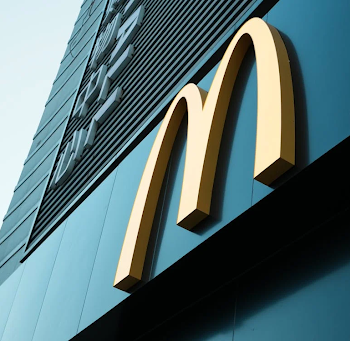Creatine is one of the most popular and effective supplements for enhancing muscle strength, power, and overall performance. Whether you are a bodybuilder, athlete, or someone looking to improve their fitness, creatine supplementation can significantly help in achieving muscle gains. However, to maximize the benefits of creatine, it is important to pair it with proper nutrition. Many people wonder, How long does creatine take to work? While the timeline for noticing visible muscle gains can vary, combining creatine with a balanced diet, rich in the right nutrients, can accelerate the process and lead to faster muscle growth. In this article, we will explore how you can combine creatine supplementation with the right nutrition to optimize muscle gains and enhance your overall fitness results.
What Is Creatine and How Does It Help Muscle Growth?
Creatine is a naturally occurring compound found in small amounts in foods like red meat and fish, and it is also produced by the body. It is stored primarily in muscle tissue as creatine phosphate, which is used to regenerate ATP (adenosine triphosphate), the body’s primary energy source for high-intensity activities like lifting weights and sprinting.
When you supplement with creatine, you increase your muscle’s creatine phosphate stores, which leads to a higher capacity to produce ATP during high-intensity exercise. This results in improved performance, strength, and the ability to push through more repetitions in the gym, ultimately leading to increased muscle growth. Creatine also promotes muscle protein synthesis and enhances recovery, both of which contribute to faster muscle gains.
Why Nutrition Is Crucial for Faster Muscle Gains
While creatine is a powerful supplement for boosting performance, it is important to understand that nutrition plays a critical role in maximizing muscle gains. Muscle growth (also known as hypertrophy) is driven by the combination of progressive resistance training, adequate recovery, and proper nutrition. Without the right fuel, your muscles may not have the building blocks they need to repair and grow after workouts.
Muscle protein synthesis is a process that repairs the tiny muscle tears caused by resistance training, and for this process to occur efficiently, your body needs enough high-quality protein and other essential nutrients. By complementing your creatine supplementation with a well-balanced diet, you ensure that your body has everything it needs to maximize the benefits of creatine and stimulate muscle growth.
Key Nutrients for Muscle Growth
For optimal muscle growth, you need to prioritize certain nutrients in your diet. These nutrients help to fuel your workouts, repair muscle tissue, and promote recovery. Below are the most important nutrients to consider when combining creatine and nutrition for faster muscle gains.
Protein: The Foundation of Muscle Building
Protein is essential for muscle growth. During exercise, especially resistance training, your muscle fibers experience micro-tears. Protein helps repair and rebuild these fibers, making them stronger and larger over time. The process of muscle protein synthesis is activated when you consume protein after a workout, which is why it is important to consume protein throughout the day, particularly post-workout.
The recommended protein intake for muscle gain is typically around 1.6 to 2.2 grams per kilogram of body weight. Good sources of protein include lean meats like chicken, turkey, and beef, as well as fish, eggs, dairy products, legumes, and plant-based protein sources.
Carbohydrates: The Energy Source
Carbohydrates play a significant role in fueling your workouts and enhancing recovery. When you train at high intensity, your body relies on glycogen (the stored form of carbohydrates) as its primary energy source. If glycogen stores are depleted, it can lead to fatigue, decreased performance, and hinder your ability to build muscle.
By consuming an adequate amount of carbohydrates, you ensure that your muscles have enough glycogen to perform at their best. After workouts, consuming carbs helps replenish glycogen stores, enhancing recovery and preventing muscle breakdown. Good sources of carbohydrates include whole grains, fruits, vegetables, and starchy foods like potatoes and rice.
Fats: Supporting Hormone Production and Recovery
Healthy fats are important for overall health and play a key role in hormone production, including the production of testosterone, which is critical for muscle growth. While fats should be consumed in moderation, they should still be a part of a well-balanced diet.
Sources of healthy fats include avocados, nuts, seeds, olive oil, and fatty fish like salmon. These fats can help support muscle recovery, reduce inflammation, and improve overall workout performance.
Micronutrients: Essential for Muscle Function
Micronutrients, including vitamins and minerals, support various bodily functions that indirectly enhance muscle growth and recovery. For example, magnesium and potassium play vital roles in muscle contraction and recovery, while vitamin D helps regulate calcium levels and supports bone health.
To ensure that you are getting an adequate supply of vitamins and minerals, aim for a diet rich in fruits, vegetables, and whole foods. A balanced intake of micronutrients helps optimize muscle function and performance, which is crucial when aiming for faster muscle gains.
Timing Creatine and Nutrient Intake for Maximum Results
To get the most out of both creatine supplementation and your nutrition plan, it’s essential to consider nutrient timing. Timing your creatine intake and meals properly can enhance absorption, improve muscle growth, and help you see faster results.
Creatine Timing
The timing of your creatine intake can impact its effectiveness, although the overall daily dose is more important than the precise timing. However, some studies suggest that taking creatine post-workout may have a slight advantage. After exercise, your muscles are more receptive to nutrients due to increased blood flow and insulin sensitivity. Combining creatine with a post-workout meal or shake containing protein and carbohydrates can help promote better uptake and utilization of creatine by the muscles.
Alternatively, some people prefer to take creatine before their workout to help boost performance, although this is less crucial. The key is consistency: whether you take creatine pre-or post-workout, ensuring you consume the recommended daily dosage of 3-5 grams is most important.
Protein and Carbohydrate Timing
For optimal muscle gain, aim to consume protein both before and after your workout. Pre-workout protein helps fuel your muscles during exercise, while post-workout protein ensures that your muscles have the necessary nutrients to repair and grow.
In addition to protein, consuming carbohydrates around your workout is important for replenishing glycogen stores and providing energy. A balanced post-workout meal containing both protein and carbs is crucial for muscle repair and recovery. The general guideline is to consume your post-workout meal or shake within 30-60 minutes after your workout.
Hydration: The Overlooked Factor
While not directly related to creatine or nutrition, hydration plays a critical role in maximizing muscle gains. Creatine causes your muscles to retain water, so it is essential to stay properly hydrated to avoid dehydration, which can lead to cramps, fatigue, and diminished performance. Aim to drink plenty of water throughout the day, especially before, during, and after your workouts, to ensure optimal hydration and maximize the effectiveness of both creatine and your diet.
Supplements to Enhance Creatine and Nutrition Effects
In addition to creatine, there are other supplements that can further support muscle growth and recovery when combined with the right nutrition. Some of these include:
- Branched-chain amino Acids (BCAAs): These essential amino acids help prevent muscle breakdown during intense exercise and promote muscle protein synthesis.
- Whey Protein: A fast-digesting protein that is ideal for post-workout consumption to kickstart muscle recovery.
- Beta-Alanine: This amino acid helps buffer lactic acid buildup in muscles, improving endurance and delaying fatigue during intense workouts.
- Fish Oil: Rich in omega-3 fatty acids, fish oil helps reduce inflammation and supports overall joint and muscle health.
By combining these supplements with a solid diet and consistent creatine use, you can further accelerate muscle growth and optimize performance.
Conclusion
Creatine is a powerful supplement that can significantly improve muscle strength, power, and overall performance. However, to truly maximize the benefits of creatine and accelerate muscle gains, it’s essential to pair it with proper nutrition. A diet rich in protein, carbohydrates, fats, and micronutrients provides the building blocks for muscle growth and repair. Timing your creatine intake alongside protein and carbohydrates, especially around your workouts, can further enhance its effects. Staying hydrated and considering additional supplements, such as BCAAs or whey protein, can also support faster muscle gains. By understanding the importance of combining creatine and nutrition, you can optimize your results and see faster progress toward your muscle-building goals.



